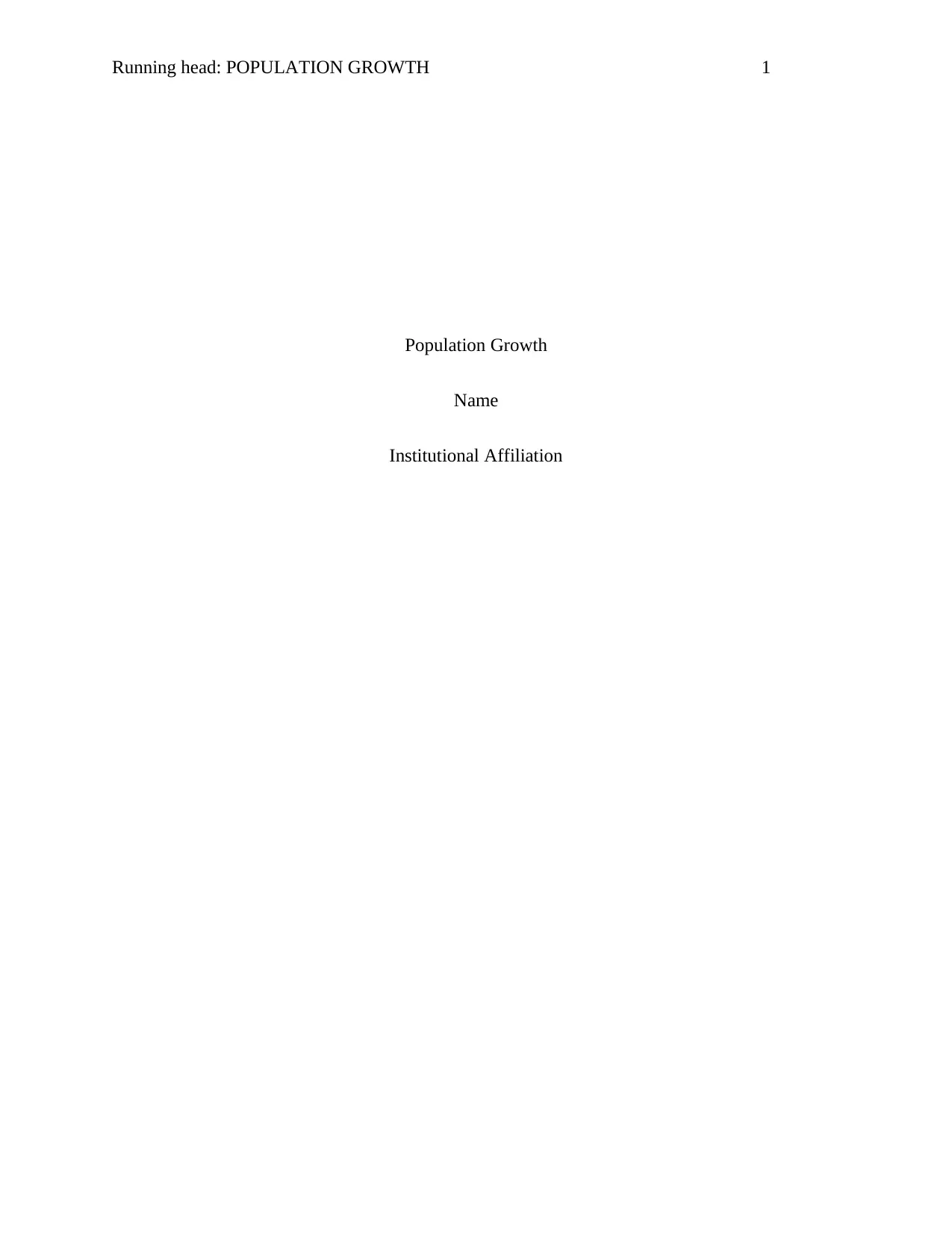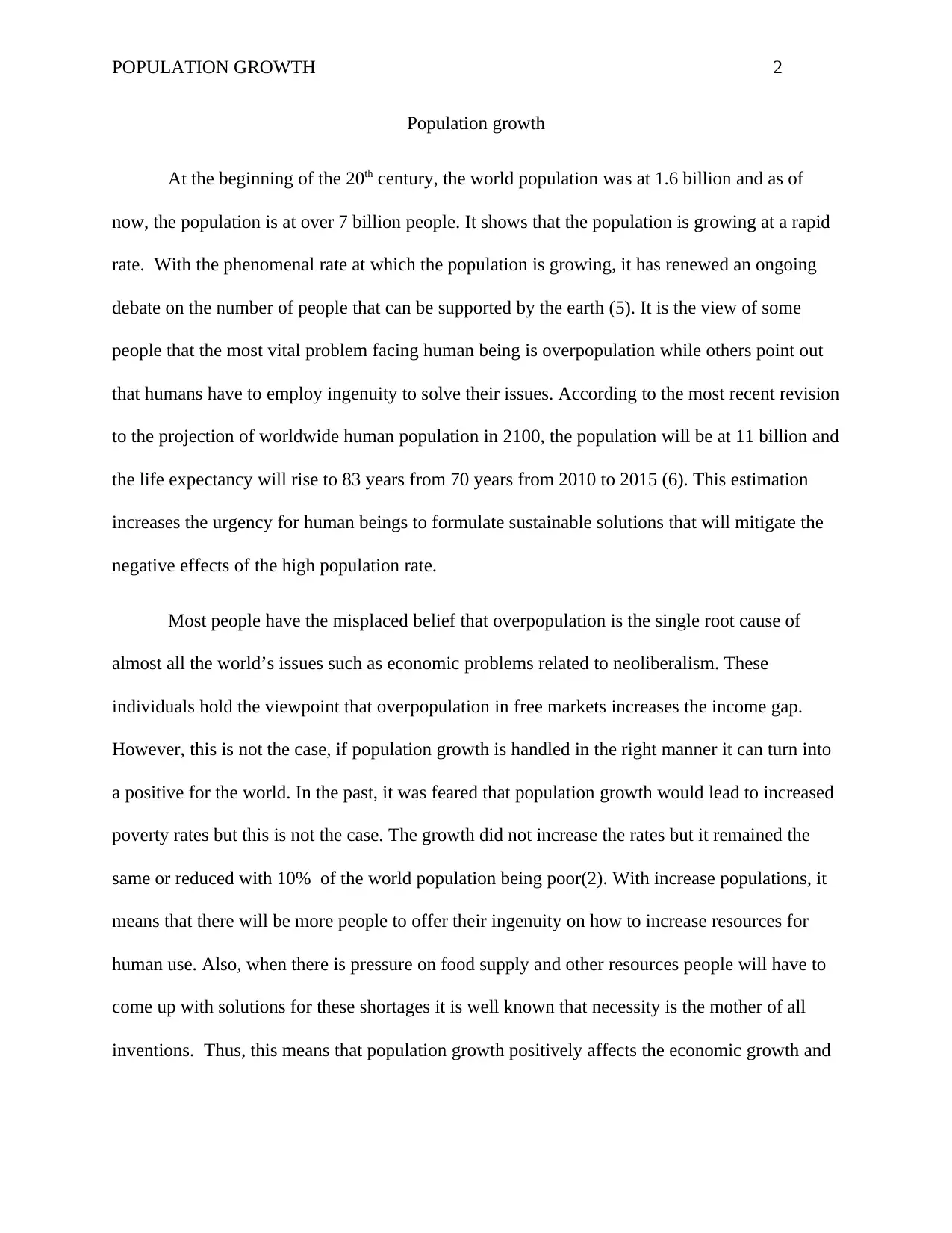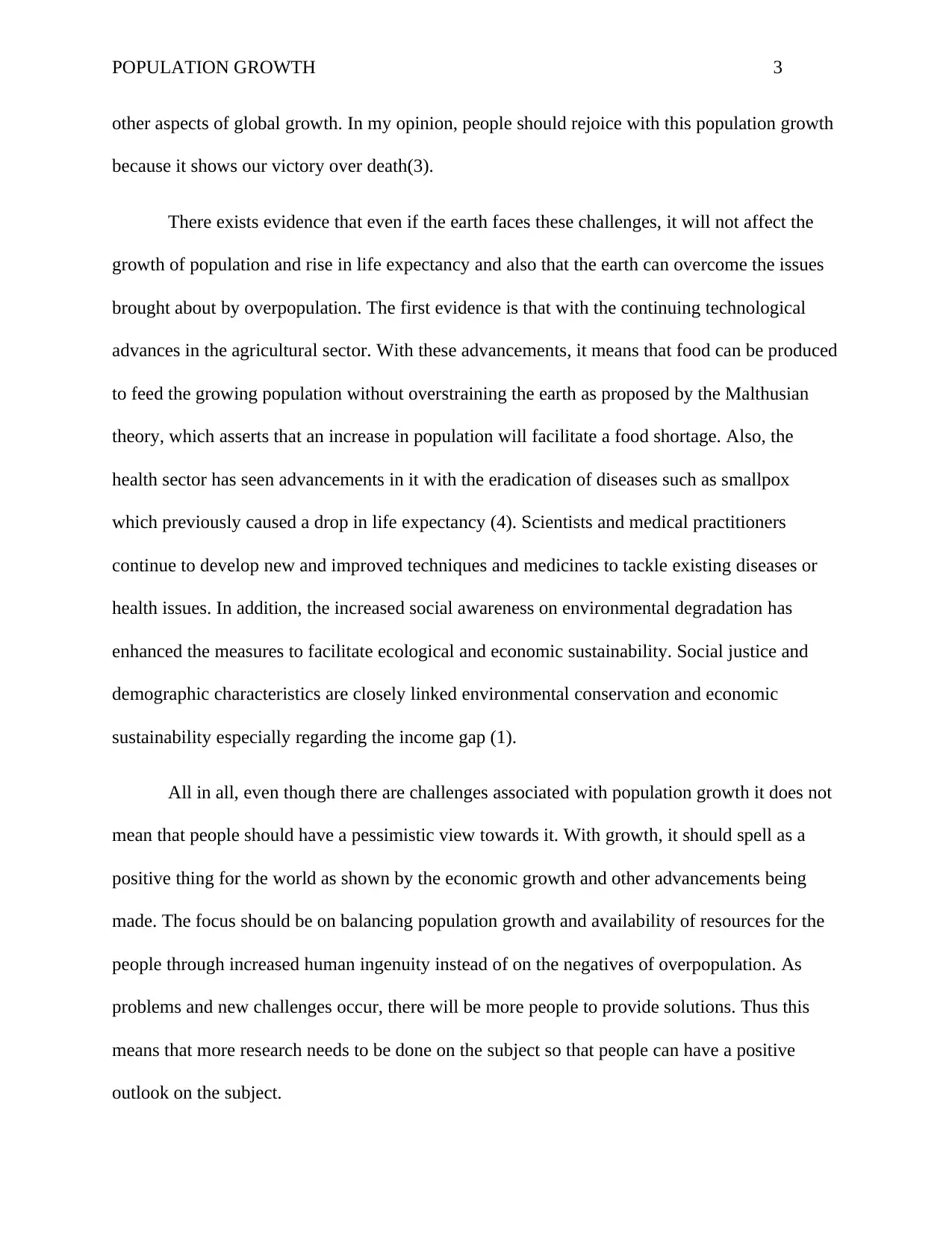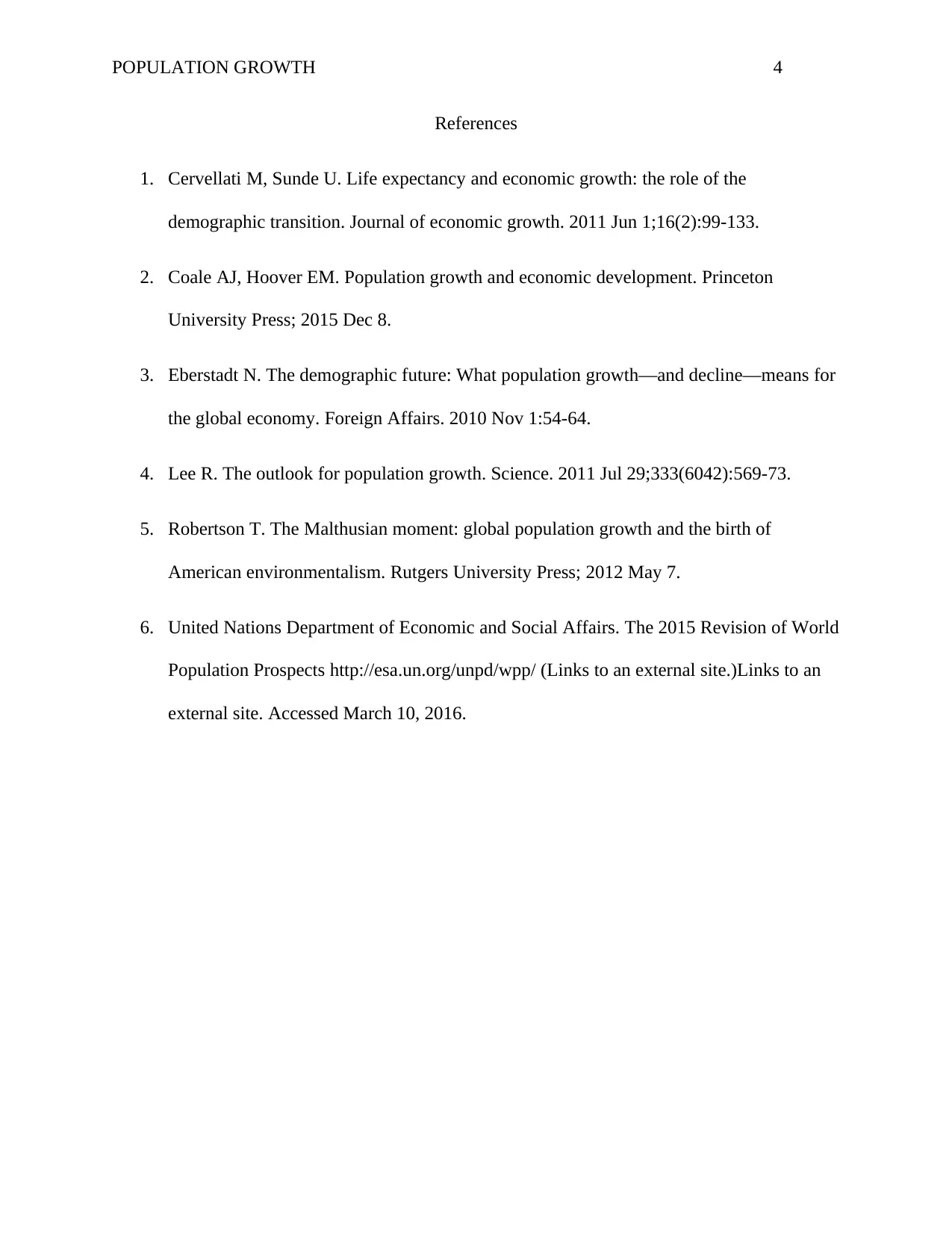Analyzing Population Growth and Its Global Economic Implications
VerifiedAdded on 2021/06/18
|4
|884
|118
Homework Assignment
AI Summary
This assignment analyzes the economic implications of population growth, starting with the rapid increase in the world's population from the 20th century to the present. It explores the ongoing debate about whether the Earth can support a growing population and examines projections for future population size and life expectancy. The paper challenges the view that overpopulation is the root cause of global problems, arguing that population growth can be a positive force, leading to increased ingenuity and resourcefulness in addressing challenges. The author supports this view by citing advancements in agriculture, healthcare, and environmental awareness, suggesting that technological and social developments can mitigate the negative effects of population growth. The assignment concludes by emphasizing the importance of balancing population growth with resource availability through human innovation, rather than focusing solely on the negatives of overpopulation and highlights the need for further research on this subject.
1 out of 4











![[object Object]](/_next/static/media/star-bottom.7253800d.svg)